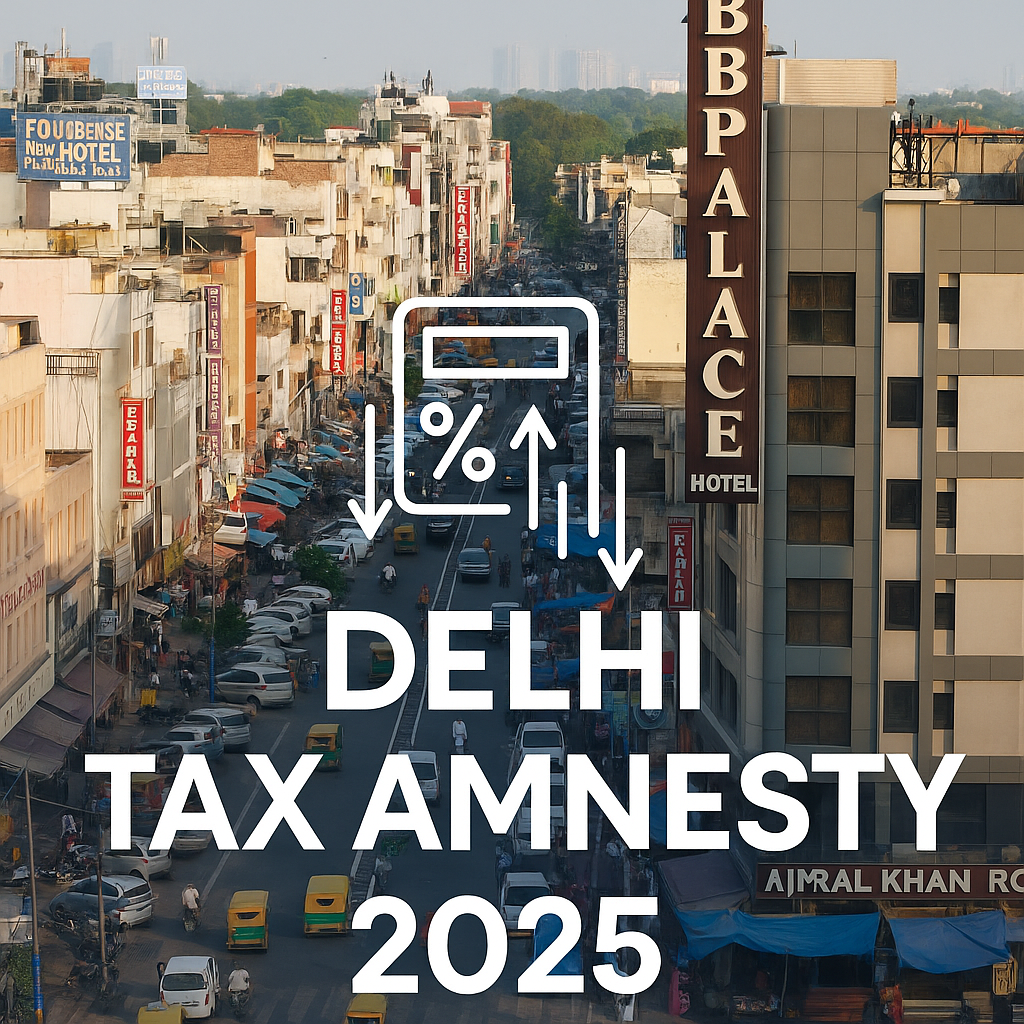In a major policy move aimed at reducing litigation and unlocking frozen tax revenue, the Delhi government is preparing to launch a one-time tax amnesty scheme. The proposal targets unresolved tax disputes from the pre-GST era, offering relief to thousands of businesses grappling with legacy tax demands under VAT, CST, luxury tax, and other local levies.
What’s Driving This Proposal?
According to senior officials quoted by Times of India, the government intends to clear long-standing tax arrears and contested cases that have piled up since before the Goods and Services Tax (GST) came into force on July 1, 2017. These disputes are not just a compliance headache but are also choking the system with pending assessments and legal cases in various tribunals.
A Delhi Finance Department official stated on condition of anonymity:
“We are in the final stages of working out the contours of the scheme. It will offer waiver of interest and penalties in most cases and allow closure of disputed demands if the principal amount is paid within the amnesty window.”
What Will the Scheme Likely Cover?
Though the official announcement is still awaited, early information suggests the scheme could offer relief across several pre-GST taxes:
- Value Added Tax (VAT)
- Central Sales Tax (CST)
- Luxury Tax
- Entertainment Tax
- Entry Tax (in specific cases)
It will likely be modeled on successful past amnesty schemes such as Sabka Vishwas (Legacy Dispute Resolution) Scheme (SVLDRS) rolled out by the central government in 2019.
Tax experts expect the scheme to include:
- Full or partial waiver of interest and penalties
- Closure of legal proceedings on settlement
- Online filing and payment of dues during a fixed window
Why Is It Needed Now?
The shift to GST in 2017 streamlined indirect taxation, but it also left behind a massive backlog of legacy disputes. According to experts, many businesses—particularly small and mid-sized traders—have been unable to settle old cases due to lack of clarity or financial stress post-pandemic.
For the government, this scheme serves two strategic goals:
- Revenue Mobilization: Unlock thousands of crores stuck in litigation.
- Administrative Relief: Reduce the load on tax officers, courts, and tribunals.
A senior policy analyst from a Delhi-based consultancy added:
“It’s a win-win. Businesses get a clean slate and avoid extended litigation, while the government collects revenue that would otherwise be lost to time and legal hurdles.”
Who Can Benefit?
Businesses and registered dealers with pending:
- Assessment orders
- Demand notices
- Appeals or revisions
- Recovery proceedings
…pertaining to any pre-GST state tax in Delhi are likely to be eligible. This includes cases where dues are already acknowledged, and even those where penalties or interest were disputed.
The scheme will likely exclude cases of serious fraud or misreporting, but details will be confirmed once the notification is issued.
When Will It Be Rolled Out?
While no official date has been given, sources say the scheme could be tabled for cabinet approval in the coming days, with implementation likely before the end of FY 2025–26 Q2, to help meet fiscal targets.
Delhi’s past experiences with similar amnesty drives—especially during VAT transition phases—have shown high uptake from small businesses, indicating that this scheme could also attract significant participation.
FAQs
What is the Delhi One-Time Tax Amnesty Scheme?
The proposed scheme allows businesses to settle pre-GST tax disputes such as VAT, CST, and luxury tax by paying the principal dues with possible waivers on interest and penalties.
Who is eligible for the amnesty scheme?
Businesses or dealers with pending assessments, demand notices, or litigation under pre-GST taxes like VAT or CST in Delhi are likely to be eligible.
What types of taxes are covered?
The scheme is expected to cover Value Added Tax (VAT), Central Sales Tax (CST), luxury tax, and other state-level levies applicable before July 1, 2017.
Will penalties and interest be waived?
Yes, in most cases, the scheme is expected to offer full or partial waivers on penalties and interest if principal dues are paid during the scheme window.
How can businesses apply?
An official announcement is awaited, but it’s expected that applications will be processed online via the Delhi Tax Department portal.
What is the objective of the scheme?
The goal is to resolve legacy disputes, reduce litigation burden, and generate immediate revenue for the state government.
When will the scheme launch?
Though the date hasn’t been confirmed, it is likely to be introduced in Q2 of FY 2025–26, after cabinet approval.
Can businesses with ongoing appeals participate?
Yes, subject to final guidelines, even disputed demands under appeal may be eligible for resolution under the scheme.

